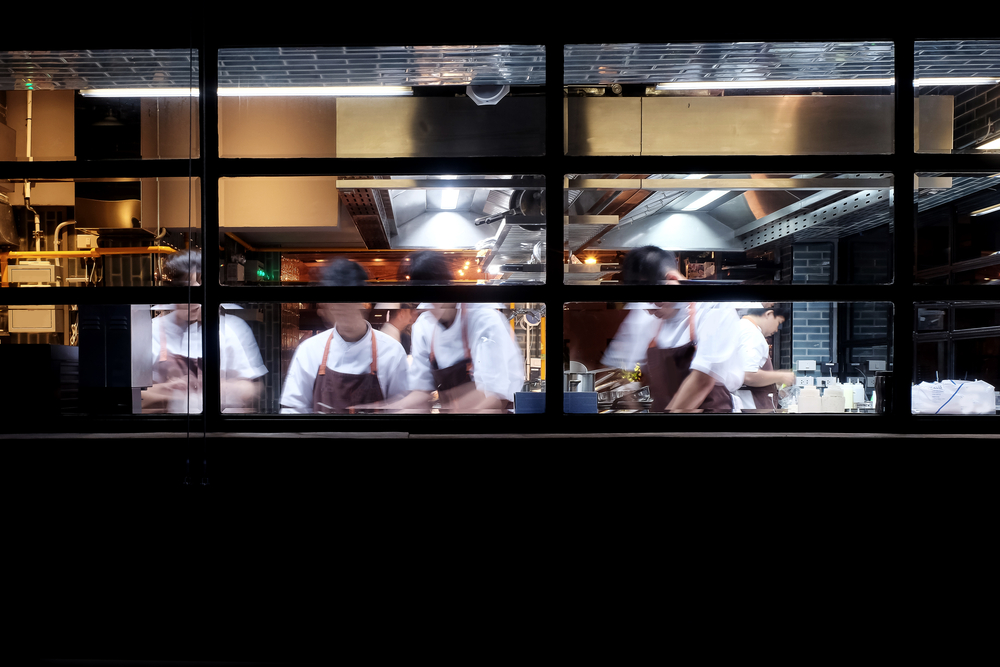Is ‘Yes, Chef’ Still Important? We Think So!
For generations, manufacturing plants have utilized a hierarchy with a clear chain of command. With the leader at the top, they set clear goals for the rest of the team and the different levels have varying levels of responsibility in enforcing rules and making sure targets are being reached. Over the years, problems with this type of system have been identified but there’s no doubting the benefits with clear communication and a clear vision for all to follow.
When it comes to implementing this system in a kitchen, Auguste Escoffier was the first to take the step. Essentially, he wanted tasks to be broken down before allocating them to those with the skills suited to do a good job. Between the executive chef and employees underneath, the whole team can ensure the expectations are reached. Now, although over 140 years later, we still use this system with specialist workers covering particular areas of the food preparation process.
Known as the ‘brigade’ system, we believe this to be effective for six main reasons. These should explain why we believe ‘yes, chef’ to be important despite changing times!
Increasing Efficiency
First and foremost, department heads can make operational decisions immediately and this allows for efficiency. Of course, the executive chef can still make the larger decisions but the smaller, hour-to-hour decisions can be made by leaders of specific zones.
Offering Authority and Responsibility
How is this efficiency allowed? Well, Escoffier disliked the chain of command he came across while in the French military; a chain that saw individuals take responsibility but without the right authority to have an impact and introduce changes. Instead of this, Escoffier wanted to create positions that took some of the pressure from the executive chef and allowed operational decisions to be made much faster. To prevent the kitchen from pulling in several directions, these oversight positions would still abide by the wider vision held by the leader.
Showing Pride
We all know how much effort goes into culinary school and gaining the title ‘chef’; therefore, we should celebrate that and give them the title they deserve. In order to earn the title, chefs need to be determined, they need to put in hard work, and they need to learn all about different foods, preparation, cooking, and presentation. However, it isn’t just the food because being a chef involves HR management, operations management, knowledge of finances, menu planning, pricing, marketing, and more. Saying ‘yes, chef’ seems to be something very simple in return!
Morale of Employees
While giving employees unlimited freedom might offer some short-term benefits, it only ever ends in tears and chaos (and not the organized kind!). We should also note that building the organizational structure alone isn’t necessarily enough; all members also need to respect the brigade and how the system works.
Often, people note how ‘military’ this all sounds and this is probably because it does have close ties to Escoffier’s military history. Despite the lack of authority mentioned previously, the French military had a clear hierarchy and Escoffier noted the confidence that resulted on the battlefield.
In our experience, this type of system doesn’t have to be limited to the military when it can be adapted for numerous fields. These days, employees are looking for an orderly and stable environment in which they can share ideas and have opportunities to shine. The hierarchical structure is ultimately useless if employees aren’t able to provide feedback or if they feel as though their opinions and ideas aren’t valued. If you don’t offer this to employees, they’ll quickly find somewhere that does.
‘Yes, chef’ isn’t just a response, it shows respect and it suggests the team member is happy working towards the same goals. With this level of unity and order in a high-pressure environment, the best possible experience will be created for the guests and there won’t be friction preventing the business from moving forward.
Working Towards Unified Goals
As the penultimate benefit to a hierarchy such as this, you can be sure that every single staff member is working towards a single philosophy. We all want to produce high-quality food, right? In addition to this, you’re likely to have goals such as;
- Helping cooks to be proud of the food they create
- Going above and beyond the guest’s expectations
- Increasing profit through high-quality food and customer satisfaction
With a simple ‘yes, chef’, it actually says ‘we’re right with you, chef’. Chef, we’re going to follow your orders and help the establishment to achieve its goals.
Showing Respect
Although this one follows the same lines as pride, we think it deserves a section of its own because ‘yes, chef’ suggests the individual respects the chef and is willing to listen. Away from the kitchen, the individual may not agree with their views or even particularly like them. As soon as they step over the threshold to the kitchen, however, there’s a respect that means all orders will be followed. If a kitchen lacks this respect, it will quickly turn sour.
Conclusion
This all seems great in practice, but how do you make it a reality? Above all else, we recommend high-quality recruitment practices. Great cooking isn’t enough in a modern kitchen; this needs to be complemented by a positive attitude, an ability to listen to orders, and the motivation to have a career rather than just a job.
With the right employees, they’ll be willing to offer ideas and be vocal when it comes to fixing problems and creating a better experience for customers. ‘Yes, chef’ confirms that everyone is on-board, they respect their superior, and they’re happy to take their portion of the responsibility!


